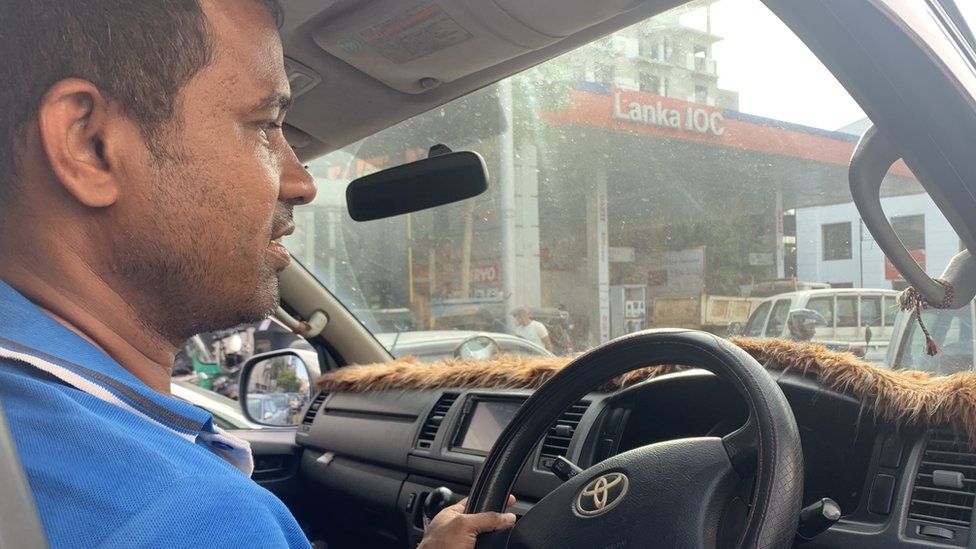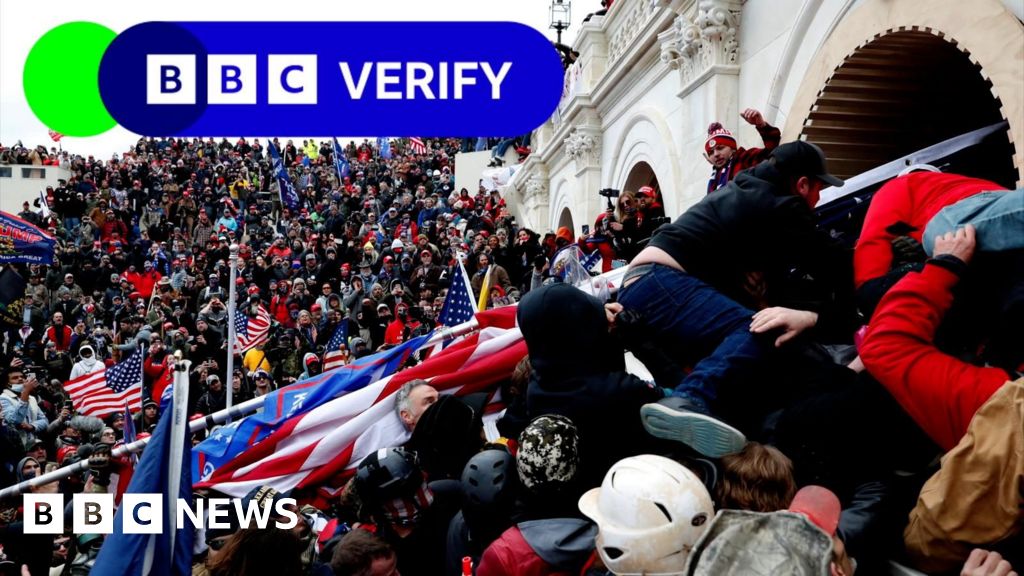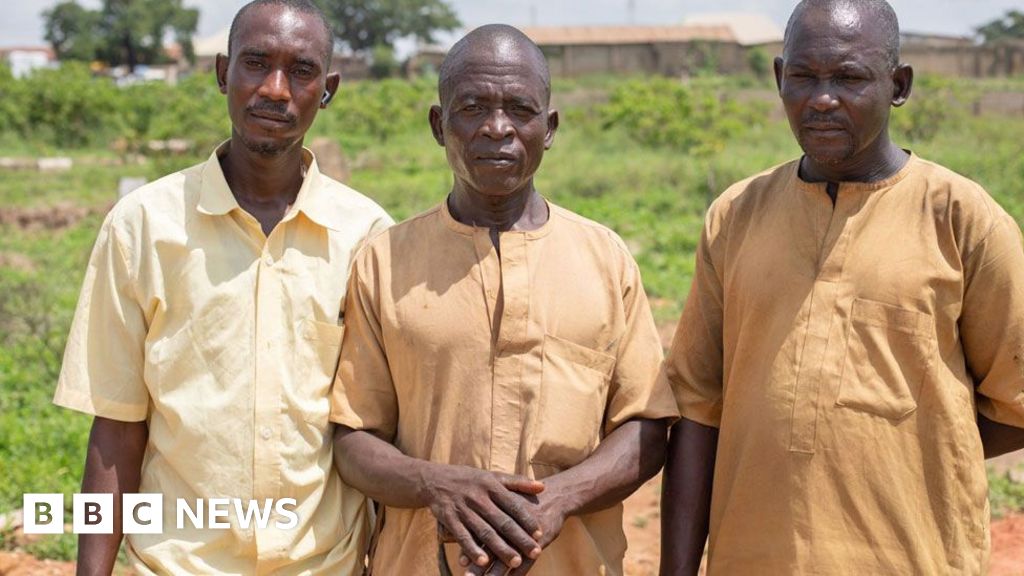ARTICLE AD BOX
By Secunder Kermani
BBC Pakistan & Afghanistan correspondent

Pratheem, a 43-year-old minibus driver, said he's slept in his car since last week to avoid leaving the queue
In Sri Lanka, huge queues of vehicles waiting for fuel have become a common sight, as the country reels from a deep economic crisis that has left it unable to import enough.
One queue, beginning in the commercial heart of the capital Colombo, and snaking round alongside a seaside strip of road, continues for 5km. Close to the front, driving a minibus, is 43-year-old Pratheem. He has been waiting in line for 10 days.
"I've been sleeping in the car since last Thursday," he tells the BBC as he inches towards the petrol station. "It's so hard but what can I do… I won't even get a full tank."
Pratheem works driving tourists around. In the past he would take them across the country, but now he can't do longer journeys and restricts himself to making trips to and from the airport.
The petrol he's queued up for, for so long, will allow him to do the journey around three times, before he has to line up once again.
Pratheem's son or brother will come and relieve him for a few hours at times to allow him to go home, but others in the queue can't even do that.
Just behind him are a number of private buses. Conductor Guna and driver Nishantha live too far away, and so have had to rely on public washrooms.
"I've been bathing once every three days," says Guna. "To urinate it costs 20 rupees (£0.47), to shower it's 80 rupees (£1.88)."
Bus conductor Guna (L) and driver Nishantha (R) have relied on public washrooms to stay clean while queueing for fuel
'It's so terrible'
The men have also been struggling with sharp rises to food prices - inflation is currently over 50%. Since they began queuing, the country has seen dramatic and unprecedented political drama, with President Gotabaya Rajapaksa forced to flee and resign as thousands of angry protesters took to the streets.
The country's dire economic situation is partly due to the impact of the Covid-19 pandemic on the tourism industry, but analysts say much of the blame lies with a series of disastrous government financial policies including cutting taxes and attempting to hastily ban chemical fertilizers.
Sri Lanka is now dangerously low on foreign reserves - needed to pay for imports of fuel and medicine as well as some foods.
Guna, the bus conductor, says at one stage he joined the protesters as they forced their way into the Prime Minister's official residence. "I was shocked at the way he lives," he tells the BBC, describing sitting down in one of the padded chairs awe-struck at the gulf between his life and that of the political elite.
Watch: The BBC on Wednesday reported from inside the office stormed by protesters in Sri Lanka
A little further back in the queue are a group of cousins. One works as a software engineer, others are bankers. They have a rotation system allowing half the group to spend nights at home, whilst others sleep in the cars to move them along the queue and protect them from thieves.
"It's so terrible, I can't express it with words," Ewantha tells the BBC. He's been trying to work from nearby cafes or from his laptop inside his car, but also praises the level of camaraderie on display in the queue.
Others have complained of frequent fights and scuffles in the heat, but he says there's a spirit of solidarity, with local businesses allowing them to use their bathrooms, for example.
The solidarity even at times permeates through those committing acts of crime. "One time I went to sleep in the car and I left my slippers outside, when I woke up they were gone," Ewantha tells the BBC with a smile. In their place the thief had left his own, old pair of torn and ripped slippers for him to use.
Ewantha, like many Sri Lankans, is furious at the prospect of the prime minister and current acting President Ranil Wickremesinghe becoming the new leader of the country.
"He's another Rajapaksa," adds another of the group, Yunus, referencing the former president and his family dynasty.
Image source, EPA
Image caption,In Sri Lanka, huge queues of vehicles waiting for fuel have become a common sight
'Time-wasting'
Mr Wickremesinghe is currently considered the most likely candidate to be selected by parliament as president next week, though protesters have insisted they will not accept him, and other politicians are also putting themselves forward.
Whoever takes charge, trying to resolve this economic crisis will be a massive challenge. The priorities will be to strike a bailout deal with the IMF and to bring more fuel into the country.
A new scheme aims to digitally register drivers and allocate them a specific amount of fuel they can collect on certain days of the week, but it will likely take years, and many difficult financial decisions, for the country to recover.
Back at the end of the queue, Chandra, working in life insurance, is gearing himself up to stay in his car for the next week. He has barely any petrol left so will likely have to push his car for most of it.
"I'm just wasting my time," he tells the BBC despondently.

 2 years ago
21
2 years ago
21








 English (US) ·
English (US) ·